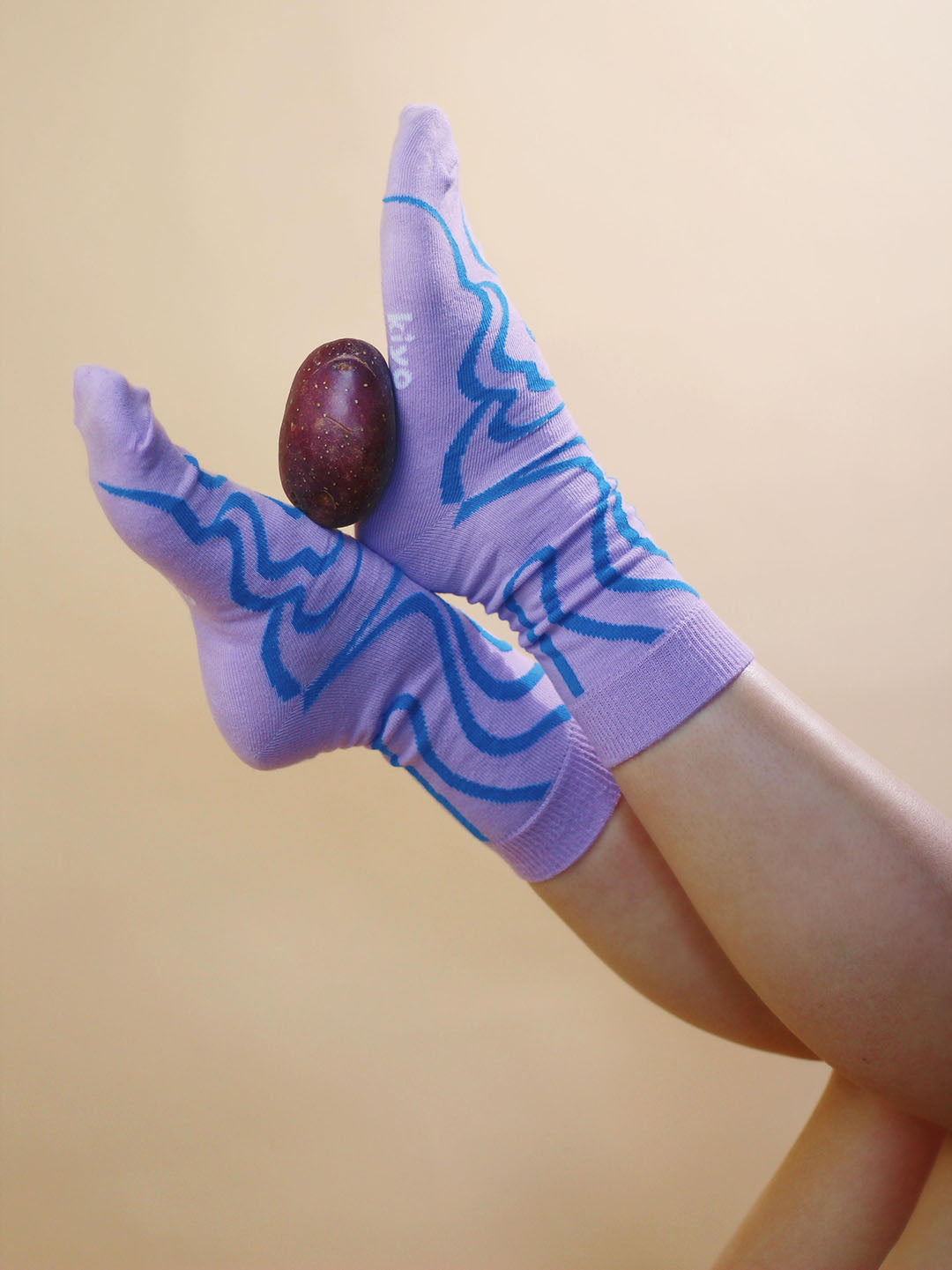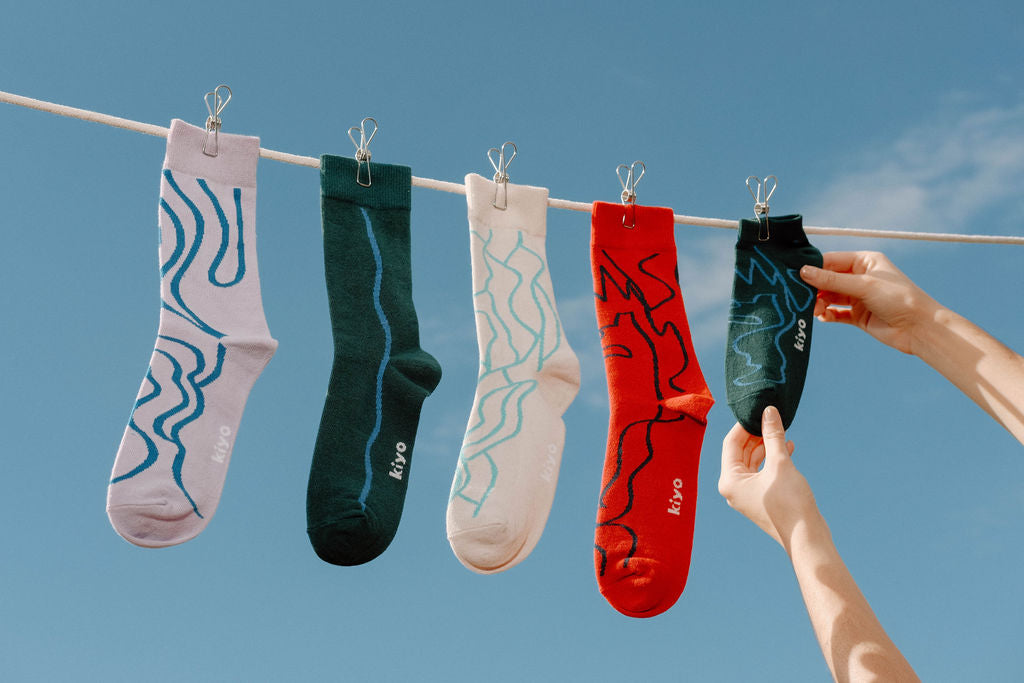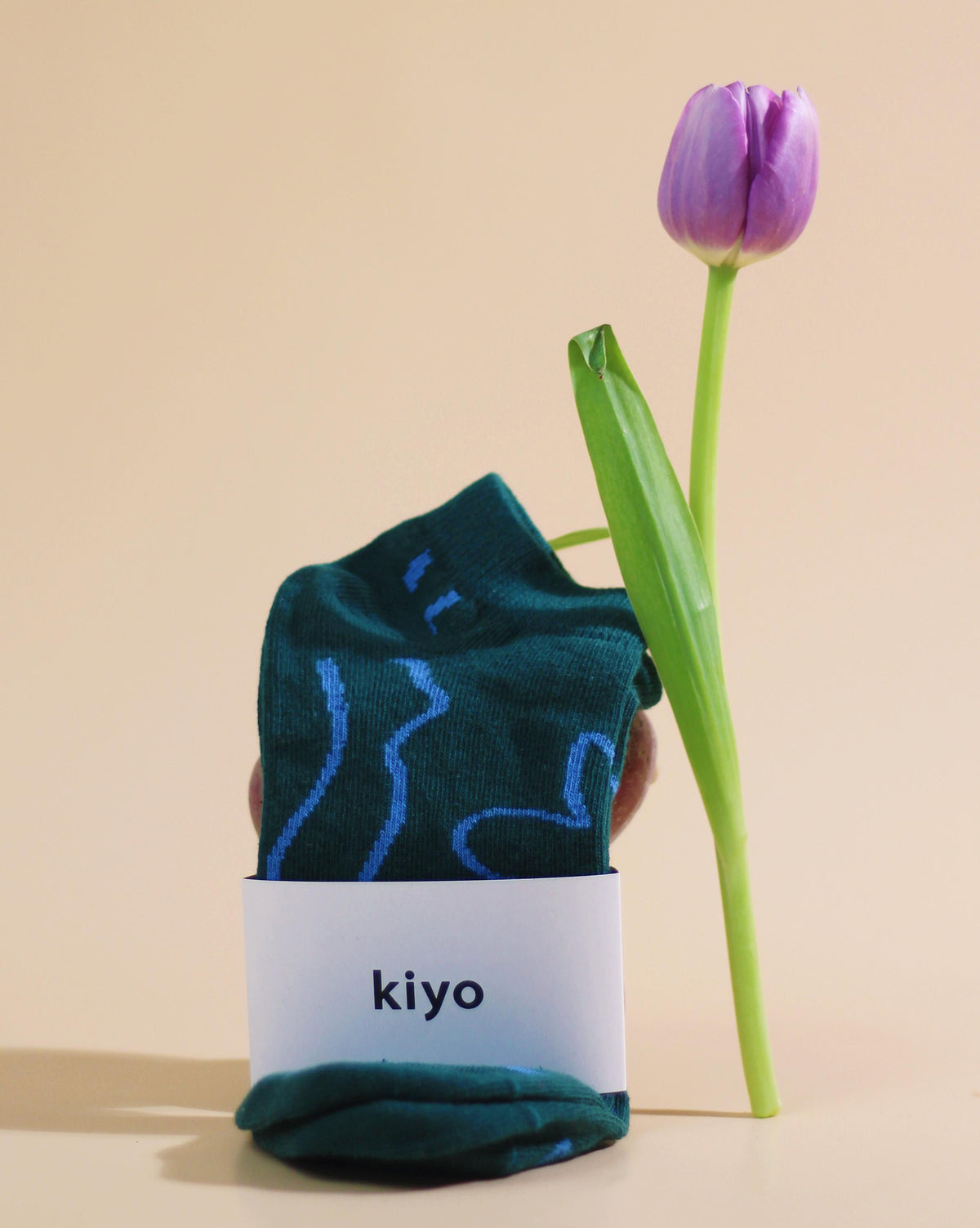Sustainability
Our goal is to try our best to produce socks as responsibly as we can. We want to be as transparent with you as possible. We are hoping as we grow, we can implement better ways into the sustainability and ethics of the production.
Manufacturer
We work with a manufacturer based in Indonesia.

SOCKS
Our socks manufacturer have certification in Standard 100 by OEKO-TEX. This means that every component of the textile has been tested for harmful substances and therefore is harmless for human’s health. For more info on Standard 100 by OEKO-TEX, go here.
There's also annual audit by BSCI, and they have been given an overall rating of A. This audit essentially covers the fairness of the workplace of the manufacturers. The manufacturer is paying their workers a living wage for the area (Bandung, Indonesia). To learn more about BSCI, go here.
Environments
MATERIALS
Our socks are made with organic cotton, grown in a farm in India. The organic cotton fibres themselves have GOTS certification. So, why organic cotton?
Organic cotton farming doesn’t use harmful chemicals, therefore is friendlier to the environment and the farmers. It is safer for people with chemical sensitivity and allergies. It uses less energy, less water and has a lower carbon footprint than conventional cotton. Since cotton is a natural fibre, it will eventually break down much quicker than synthetic fibres.
Our socks are OCS-certified "made with organic". The cotton was grown using no hazardous pesticides nor synthetic fertiliser. Organic production uses crop rotation and natural inputs (animal or green manure) to build fertility. This organic standard means that it requires crop rotation, soil conservation and soil management. The crop is around 75-80% rainfed. To learn more about OCS, go here.
As mentioned above, our manufacturer also has an OEKO-TEX certification. Which means all of the materials and products they produced have been tested for harmful substances. They are in "product class 1", this class has the strictest requirements and limit values. Learn more about OEKO-TEX here.
We are not using any materials that are derived from animals.
PACKAGING & SHIPPING
We wrap our products in reused paper or in compostable, recyclable and recycled tissue paper by Noissue. So they are nice and neat! And then put them into a compostable bag (by Hero Packaging) to send our products to you. In short, we package your orders in plastic-free packages.
For shipping, we send our package to you with a 100% carbon neutral delivery service.

Labour
SOCKS MANUFACTURER
As mentioned above, our socks manufacturer has a BSCI certification, which means it guarantees basic living wages, safe work conditions and no forced/child labour. The youngest workers in this manufacturer are 18 years old.
The workers are paid basic living wages for the area. They also get transportation and meal allowance daily. The working hours are 40-45 hours/week. The factory pays 150% of normal pay for overtime hours on a normal working day, and 200% of normal pay for overtime hours on holiday.
The factory provides healthy and safe working environment and equipments (such as fire alarm, proper ventilation and lighting, first aid boxes, first aid training, evacuation plans and many more).
Production
We are trying to release low MOQ every time we release new products - depends on the negotiation with our manufacturer. At the moment, for socks we release only 500 pairs per design, and only 100 grocer bags. This would last approximately 1-2 years.
We don't release seasonal collections. We only produce more items or designs when we are running low of those particular products (e.g. we only produce more socks only when our current socks inventory is running low). We don't discard our stock inventory at all, therefore there won't be products wasted unncessarily - unlike how the fast fashion industry works. We are a very small team (only the two of us!), so we won't have the budget or power to do that anyway!
Got more questions?
We want to grow better, so we are constantly doing lots of research, reading, watching and listening. If you have more questions for us regarding the sustainability and ethics, or if you have suggestions on how we can improve them, send us an email at hello@kiyo.com.au.


